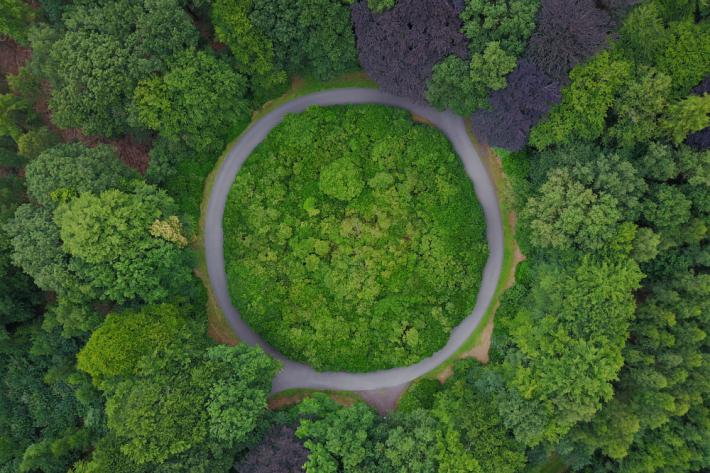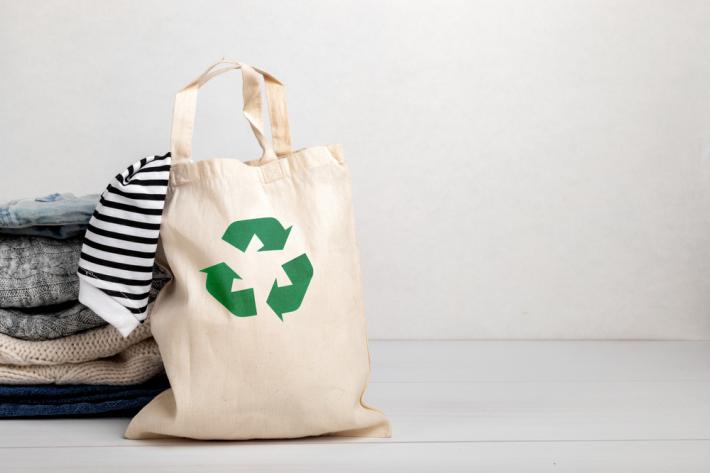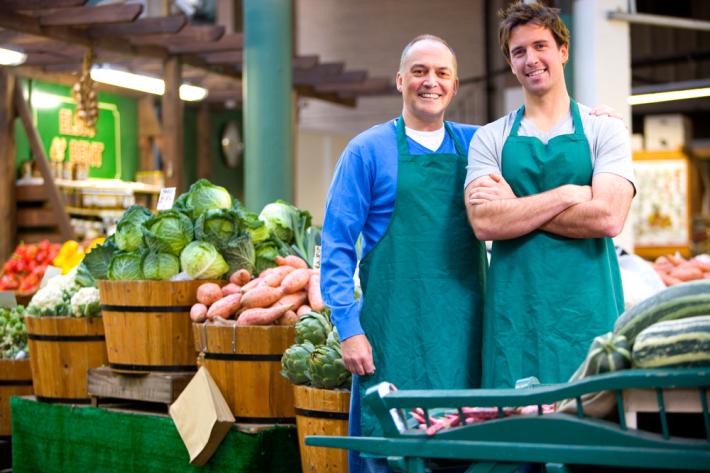A Circular Economy: An Alternative to Our 'Throw Away' Culture
29 April 2022

What does a Circular Economy mean?
A circular economy is about reworking the way we produce, consume, and dispose of products and services. It’s about making the most of what we have by making it last as long as possible, rather than automatically purchasing something new. It’s also about ensuring that the materials which go into the production of those products and services are reused and repaired as much as possible, and recycled only when worn out, in the most environmentally conscious way possible.
In essence, a circular economy is the opposite of the typically linear production system where products are made, used, and disposed of. Instead, a circular economy encourages a more sustainably driven production loop. This system allows for less waste, reduced carbon emissions and ensures that materials are used to their full potential. It’s estimated that a circular economy can reduce global carbon emissions by 39%, demonstrating what a huge difference the introduction of this system can make towards Scotland’s journey to net zero.

Re-Use, Repair and Recycle
A circular system clears a path for new ideas on how to make the most of the materials we have and to avoid wasting or exploiting our natural resources.
By adopting a circular system we can find opportunities to re-use, repair, refurbish or recycle materials in every part of the production, distribution and disposal of products or services. A circular economy designs products with the end of their life in mind. It’s about creating products that are long lasting with an additional focus on sustainable disassembly so that parts of the product can be reused appropriately.
There are already a number of companies around the world leading the way towards a circular future, including right here in Scotland. For businesses to get on board with the principles of a circular economy, there are a few questions they can ask themselves. Can a business provide a take-back service for used products? Can products be distributed in environmentally-friendly packaging? Where are the products’ raw materials coming from and can they be sourced from recycled or sustainable materials? There are lots of possibilities to create a successful circular economy both in business and in your own personal life.

Circular Success Stories
Here are some of the innovative companies across Scotland already forging a sustainable, circular future, with funding and expert advice from Zero Waste Scotland.
Beauty Kitchen is helping to eradicate needless packaging through a successful ‘return, refill, reuse’ system. Empty bottles and tubs for everyday products like shampoo and moisturiser are returned by shoppers to be cleaned and refilled for other customers. Beauty Kitchen has also collaborated with global retail giant Unilever and UK supermarket chain Asda on sustainability stores for customers to bring their own containers for popular items including cereals, further reducing needless throwaway packaging.
Argent Energy is focused on taking waste fats and oils and converting them into high grade biodiesel which can be used for plenty of our everyday essentials from vehicle fuel to heating and power generation.
CelluComp is a company which transforms nano fibres from root vegetables into sustainable, environmentally friendly paint thickener, highlighting how even the simplest of materials can have a whole new life to offer with a bit of sustainable innovation across every industry.

Can You Introduce a Circular Economy at Home?
Taking the principles and ethos of the circular economy and applying them to your everyday, family life is entirely possible. Going about your daily life with a ‘reduce, reuse, repair, refurbish and recycle’ mindset will allow you to make regular, sustainable choices, choices which are a crucial step in Scotland reaching net zero by 2045 and lowering your own carbon contribution.
A circular economy allows you to look at the things you own in a new way and come up with creative ways to keep your belongings in use for as long as possible. This essentially boils down to holding on to what you have, looking after it, repairing when need be and then passing it on for reuse or, if that’s not possible, recycling it when it’s no longer serving you or your family.
Instead of throwing away that old jacket, why not stop and ask yourself a few questions before you do so? Questions like can you upcycle or repair it? Instead of chucking your plastic takeaway containers in the bin, can you reuse or repurpose them? Could you shop second hand rather than buying new when you’re updating your wardrobe? Could you borrow or rent a tool you need to make those home improvements rather than buying your own?
If you’re ready to embrace a more circular way of life, you can find out more on our reduce, reuse, recycle page https://www.netzeronation.scot/take-action/reduce-re-use-recycle.